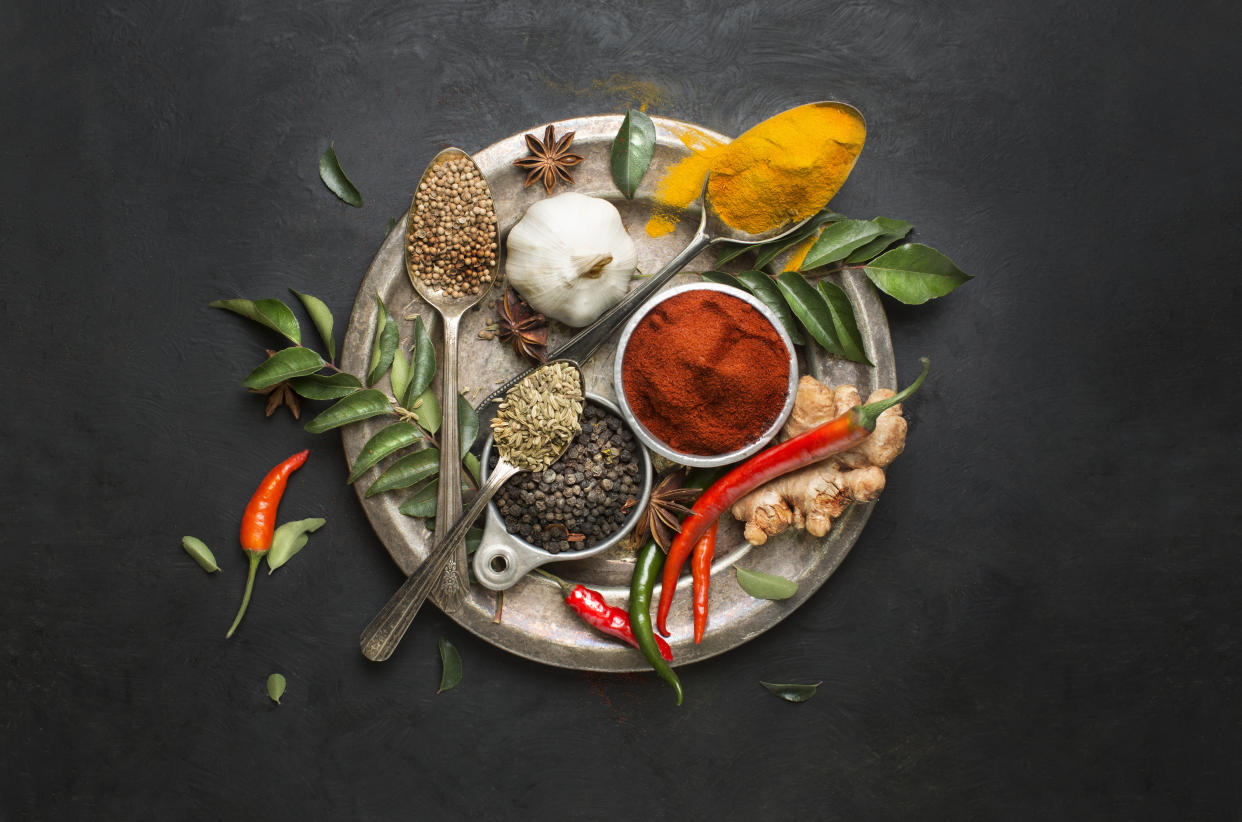Herbs and spices ‘lower dangerous inflammation linked to heart disease’

Herbs and spices are a culinary staple to give food a depth of flavour.
Scientists from Pennsylvania State University have found the tasty condiments may also boost heart health.
Read more: Adding chilli to your meals could ward off an early death
The team added a 13-spice blend made up of rosemary, cinnamon and turmeric to a fatty, starchy meal.
Participants who ate the spicy dish had reduced inflammation compared to when they consumed the same plate of food but without the flavoursome kick.
Chronic inflammation has been linked to a host of health complaints, namely heart disease and obesity.
Antioxidant-rich herbs and spices are thought to dampen inflammation, reversing the effects of a fatty meal.
“If spices are palatable to you, they might be a way to make a high-fat or high-carb meal more healthful,” said study author Dr Connie Rogers.
“We can't say from this study if it was one spice in particular, but this specific blend seemed to be beneficial.”
Research has suggested inflammation spikes after we eat a fatty, sugary meal.
To learn more, the scientists looked at 12 men between 40 and 65.
All the men were overweight or obese, which raises the risk of heart disease.
Read more: Fermented soy like miso 'reduces the risk of an early death by up to 11%'
“Ultimately the gold standard would be to get people eating more healthfully and to lose weight and exercise, but those behavioural changes are difficult and take time,” said Dr Rogers.
“So in the interim, we wanted to explore whether a combination of spices that people are already familiar with and could fit in a single meal could have a positive effect.”
In random order, the men ate three versions of a meal high in saturated fat and carbohydrates on three separate days.
One of the dishes had no spices, the second had two grams of the spice blend and the final meal contained six grams of the mix.
The spices and herbs were basil, bay leaf, black pepper, cinnamon, coriander, cumin, ginger, oregano, parsley, red pepper, rosemary, thyme and turmeric.

Blood samples measured markers of inflammation before and after the men ate each dish.
Immune-fighting cells were also isolated and exposed to an “inflammatory stimulus”.
This would occur naturally if the body encounters an infection and launches an immune response, which triggers inflammation.
Results, published in the Journal of Nutrition, revealed the men released fewer inflammatory immune proteins after eating the meal with 6g of the spice blend.
Read more: Walnuts ‘boost heart health by feeding gut bacteria’
Six grams roughly translates as between one teaspoon and one tablespoon, depending on how the herbs and spices are dehydrated, according to the scientists.
It is unclear which of the 13 in the blend were the most beneficial.
A second study with the same participants found eating the six grams of spices resulted in a smaller reduction in “flow mediated dilation” in the blood vessels.
This is a measure of blood vessel flexibility that suggests healthy circulation.
The scientists hope to look at the benefits of spices over a longer period of a time in a more diverse group of people.



